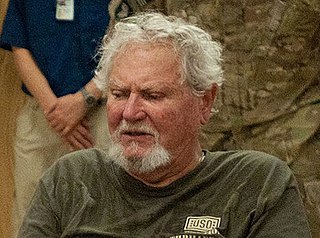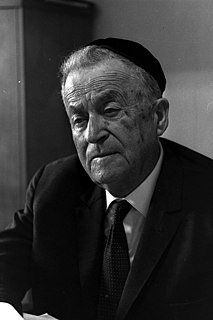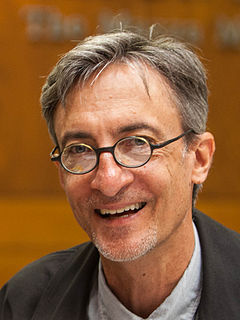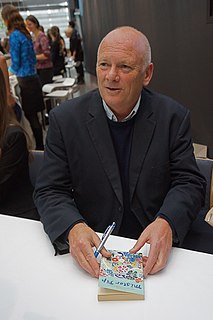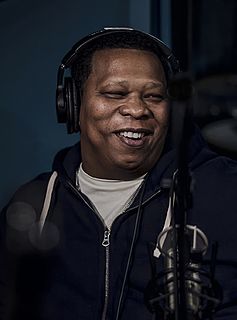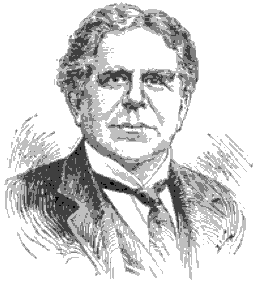Top 1200 Burn Book Quotes & Sayings - Page 6
Explore popular Burn Book quotes.
Last updated on December 18, 2024.
If 'Mystery Train' is my Nixon book and 'Lipstick Traces' my Reagan book, 'Invisible Republic' is my Bill Clinton book. I really liked Clinton. He made me proud to be part of this country again. For all of his failings, the way he put all that he'd done in jeopardy, I supported him from beginning to end.
You can't write a book if you've never read a book. And if you've read five books and you try to write a book, your book will mainly encompass the themes and the context of the five books you've read. Now, the more books you read, the more you can bring to a book when you decide to write one. So the more rap I learned, the more I was able to bring to rap when I decided to rap. But this was all subconscious.
The book of the moment often has immense vogue, while the book of the age, which comes in its company from the press, lies unnoticed; but the great book has its revenge. It lives to see its contemporary pushed up shelf by shelf until it finds its final resting-place in the garret or the auction room.
The burning of a book is a sad, sad sight, for even though a book is nothing but ink and paper, it feels as if the ideas contained in the book are disappearing as the pages turn to ashes and the cover and binding--which is the term for the stitching and glue that holds the pages together--blacken and curl as the flames do their wicked work. When someone is burning a book, they are showing utter contempt for all of the thinking that produced its ideas, all of the labor that went into its words and sentences, and all of the trouble that befell the author . . .
I doubt if I shall ever have time to read the book again -- there are too many new ones coming out all the time which I want to read. Yet an old book has something for me which no new book can ever have -- for at every reading the memories and atmosphere of other readings come back and I am reading old years as well as an old book.
I will write in words of fire. I will write them on your skin. I will write about desire. Write beginnings, write of sin. You’re the book I love the best, your skin only holds my truth, you will be a palimpsest lines of age rewriting youth. You will not burn upon the pyre. Or be buried on the shelf. You’re my letter to desire: And you’ll never read yourself. I will trace each word and comma As the final dusk descends, You’re my tale of dreams and drama, Let us find out how it ends.
If you want to write about a person who isn't nice, people say, "This is a bad book. It's about somebody I couldn't stand." But that's not the point. You don't have to like a character to like a book. Most of the time, people would misjudge and say, "I didn't like the book." No, you didn't like the character. That doesn't make it any less interesting of a book. In fact, to me, it makes it more interesting.
When I was first writing 'Feed' - which was the first book I published as Mira - I talked about it very openly on my blog, on Twitter, that I was writing this book, and it wasn't until after it was sold that I said 'Mira Grant' wrote this book. And the reason there was really purely marketing-based.
In America, and no doubt elsewhere, we have such a tendency toward the segregation of cultural products. This is a black book, this is a gay book, this is an Asian book. It can be counterproductive both to the literary enterprise and to people's reading, because it can set up barriers. Readers may think, "Oh, I'm a straight man from Atlanta and I'm white, so I won't enjoy that book because it's by a gay black woman in Brooklyn." They're encouraged to think that, in a way, because of the categorization in the media.
You put together two people who have not been put together before. Sometimes it is like that first attempt to harness a hydrogen balloon to a fire balloon: do you prefer crash and burn, or burn and crash? But sometimes it works, and something new is made, and the world is changed. Then, at some point, sooner or later, for this reason or that, one of them is taken away. and what is taken away is greater than the sum of what was there. this may not be mathematically possible; but it is emotionally possible.
If you can find two poems in a book, it could be a pretty good book for you. You know, two poems you really like. There are some poets who are fairly big names in contemporary poetry and who write a book and I might like three or four poems in the book, but the rest of them don't appeal to me personally; but I think that's the way it really ought to be. I think it's really a rare thing to like everything that somebody has written.
Because he did not have time to read every new book in his field, the great Polish anthropologist Bronislaw Malinowski used a simple and efficient method of deciding which ones were worth his attention: Upon receiving a new book, he immediately checked the index to see if his name was cited, and how often. The more "Malinowski" the more compelling the book. No "Malinowski", and he doubted the subject of the book was anthropology at all.
In our own country, we have seen America pay a terrible price for any form of discrimination, and we have seen us grow stronger as we have steadily let more and more of our hatreds and our fears go. As we have given more and more of our people the chance to live their dreams. That is why the flame of our Statue of Liberty, like the Olympic flame carried all across America by thousands of citizen heroes will always burn brighter than the flames that burn our churches, our synagogues, our mosques.
You put together two people who have not been put together before; and sometimes the world is changed, sometimes not. They may crash and burn, or burn and crash. But sometimes, something new is made, and then the world is changed. Together, in that first exaltation, that first roaring sense of uplift, they are greater than their two separate selves. Together, they see further, and they see more clearly.
So, you see, it's a real chore for me to write a book review because it's like a contest. It's like I'm writing that book review for every bad book reviewer I've ever known and it's a way of saying [thrusts a middle finger into the air] this is how you ought to do it. I like to rub their noses in it.
What's your favorite book?' is a question that is usually only asked by children and banking identity-verification services--and favorite isn't, anyway, the right word to describe the relationship a reader has with a particularly cherished book. Most serious readers can point to one book that has a place in their life like the one that 'Middlemarch' has in mine.
The Bible is the Only Book That Can Make Us Wise unto Salvation. The Bible is not a book to be studied as we study geology and astronomy, merely to find out about the earth's formation and the structure of the universe; but it is a book revealing truth, designed to bring us into living union with God.
There were times when I thought I had to be completely off-book and ready to give my opening night performance at the audition, but then I swung back to a more relaxed view of it. Certainly you've looked at the material and prepared it, but there's no reason to be off-book. You're not getting points for being off-book.
I was perpetually grief-stricken when I finished a book, and would slide down from my sitting position on the bed, put my cheek on the pillow and sigh for a long time. It seemed there would never be another book. It was all over, the book was dead. It lay in its bent cover by my hand. What was the use? Why bother dragging the weight of my small body down to dinner? Why move? Why breathe? The book had left me, and there was no reason to go on.
The book is a uniquely durable object, one that can be fully enjoyed without being damaged. A book doesn't require fuel, food, or service; it isn't very messy and rarely makes a noise. A book can be read over and over, then passed on to friends, or resold at a garage sale. A book will not crash or freeze and will still work when filled with sand. Even if it falls into the bath, it can be dried out and finished. Books require no special training to operate.
The face of the water, in time, became a wonderful book- a book that was a dead language to the uneducated passenger, but which told its mind to me without reserve, delivering its most cherished secrets as clearly as if it uttered them with a voice. And it was not a book to be read once and thrown aside, for it had a new story to tell every day.




